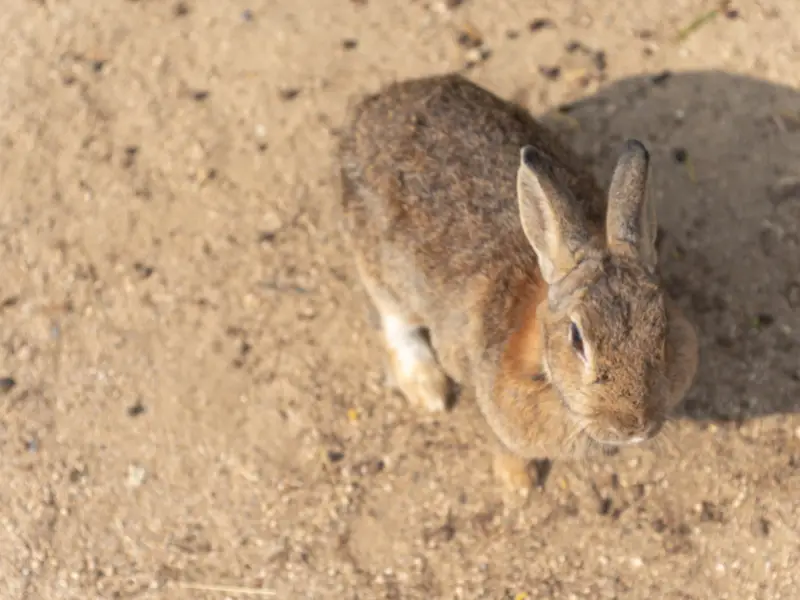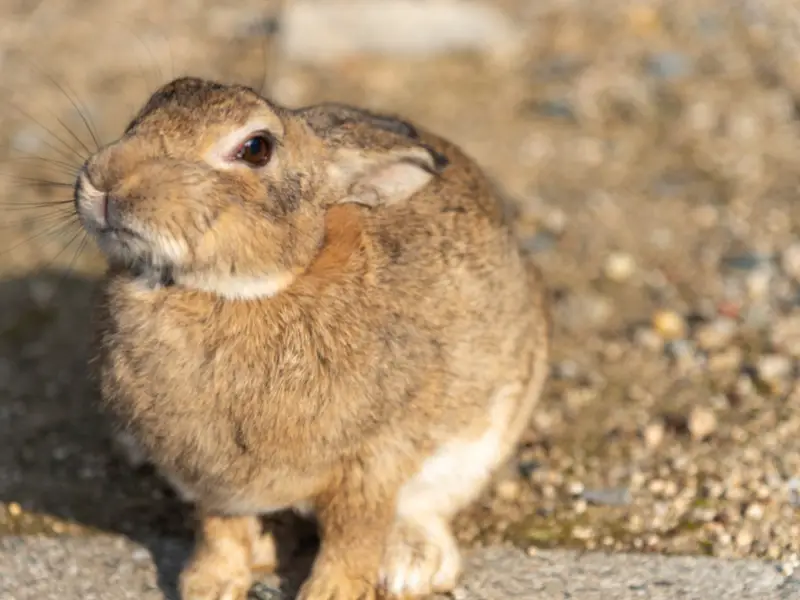Sometimes, adopting a rabbit involves more than you initially thought. Perhaps you don’t have the time to see to all your rabbit’s needs, and now you don’t know what to do with them.
Can you release a rabbit back into the wild?
A domesticated rabbit should never be released back into the wild. Unlike wild rabbits, domestic rabbits have lost their sharp instincts to survive in the wild. They don’t react to dangerous situations as they should and also end up eating toxic plants that can kill them.
Do you need to rehome your rabbit but need help figuring out what to do? Then this detailed guide will provide you with all the information you need.
Can I Set My Rabbit Free?
You can’t set your pet rabbit free into the wild. Your bun has generations of domestication behind them.
Humans bred rabbits to keep as pets or for food and fur. Domesticated rabbits now have softer fur, more vibrant colored coats, and a friendly temperament, and some of them are bred to put on weight (for meat production).
In other words, your bunny is in no way bred to survive in the wild. They need to be looked after and cared for by their owners.
Will My Pet Rabbit Survive in the Wild?
Your pet rabbit will not survive in the wild for long, as they have lost most of their basic survival instincts through breeding.
Your floppy-eared friend was bred to live in a safe and controlled environment, not in the wild, where they must fend for themselves.
Releasing your bun into the wild puts them at the mercy of predators, the elements, and poisoning (through toxic plants such as wild mushrooms or herbicides used by farmers).
Let’s take a quick look at some facts about wild rabbits vs. domestic rabbits:
1. Wild rabbits run and hide from predators, whereas domestic rabbits live in houses or hutches and have no need to evade predators.
2. An average-sized wild rabbit (such as the wild cottontail) weighs around 8 pounds and is faster, whereas an average domestic rabbit (such as the Rex rabbit) weighs about 6 pounds and is slower.
3. Wild rabbits eat twigs, bark, plant roots, berries, and leaves, whereas domestic rabbits eat Timothy grass hay, pellets, leafy green vegetables, and fruit.
4. Cottontail rabbits and wild hares sleep in nests above the ground, whereas domestic rabbits live in enclosures or houses.
What Will Happen to Your Pet Rabbit If Released in the Wild?

Let’s take a look at what will happen to your pet rabbit if you release them into the wild:
They Stand Out
Your bun has been specifically bred to have a softer, more vibrant fur coat. Domestic rabbits have various colors, from bright white to dusty orange.
Unfortunately, this puts them at a considerable disadvantage in the wild. Your pet rabbit’s coat will attract predators as they stand out, so they won’t survive for long.
Wild rabbits have fur coats that easily camouflage with their surroundings and allow them to hide from predators.
Different Living Environment
Your rabbit is used to living in a hutch or free-roaming your house. Their living environment is very cozy and has everything they need, from food to a special litter box.
If your bun is released into the wild, they’ll need to dig burrows underground to hide and sleep.
The climate will also affect them as they may be in direct sunlight. They’ll be subjected to intense weather changes. The foliage will also be strange and new.
Predators and Disease
One thing that your floppy-eared friend is not prepared for is predators. They have been sheltered and protected until this point. Unfortunately, domesticated rabbits aren’t as skittish or wary as wild rabbits.
For this reason, domestic rabbits don’t survive for long in the wild. Your bun has also become lazy living in captivity and is not as fast (or as good) at evading predators as wild rabbits.
Your bun will need to outsmart and escape predators such as:
- Raccoons
- Hawks
- Owls
- Foxes
- Dogs
Your rabbit is also likely to pick up ticks, fleas, and other parasites in the wild that can cause their death.
Things to Consider Before Getting a Pet Rabbit
Before adopting a bunny, you must keep these considerations in mind:
- Rabbits don’t enjoy being carried around or over-cuddled.
- Rabbits like to chew things, especially electrical wires, skirting boards, furniture, and your favorite shoes.
- Rabbits produce over 200 to 300 poop balls a day, but you can litter-train your bun.
- Rabbits require space to run and play. A small hutch is not the ideal option for a happy bunny.
- Rabbits need love, affection, and time with their owners.
- Rabbits prefer to live in pairs.
- Rabbits breed rapidly, so you’ll need to have them sterilized.
- Some rabbits do have attitudes and can be grumpy.
- Rabbits aren’t the best option as a pet for children.
- Rabbits require special veterinary care and a balanced diet.
What to Do When You Can No Longer Care for Your Rabbit
Releasing your bun into the wild is not an option. It’s cruel, and it’s also illegal in many places.
If you can no longer care for your rabbit and you can’t find a friend or family member that can adapt your bun, consider one of the following options:
Shelters
Contact local animal shelters to find out if they take rabbits in. Once your bun is at a shelter, you’ll know they’re getting the food and care they need. Here are a few good shelters that have the option to adopt:
- Red Door Animal Shelter is a non-profit, no-kill animal shelter that takes in unwanted rabbits and other animals.
- VCAS Bunny Brigade is a group of volunteers that place rabbits into new homes.
Rescue
Another option to consider is rabbit rescue institutions such as:
- Rocky Mountain House Rabbit Rescue is a non-profit organization that rescues unwanted and neglected rabbits and assists with wildlife rehabilitation.
- Georgia House Rabbit Society is one of the largest domestic rabbit rescue centers in Georgia, United States.
Humane Societies
There are several humane societies available that provide shelter, advice, and adoption options for unwanted rabbits, such as:
- Whatcom Humane Society: Lorraine Wilde is part of the society and is very active on social media. Abandoned rabbits have well looked after.
- House Rabbit Society is a non-profit organization that rescues and adopts rabbits.
My Last Bunny Thoughts
At the end of the day, you made a conscious decision to adopt a bunny. Leaving them to fend for themselves in the wild is unfair and cruel (not to mention illegal). These poor animals don’t understand why they’ve been abandoned in such harsh conditions.
If you cannot look after your rabbit any more, you must rehome them in a good and safe environment. There are plenty of rescue shelters and adoption options available.
Please think carefully and do your research before adopting one of these lovely animals.
As much as they creep into your heart, you sneak into theirs as well.
Related Articles:

